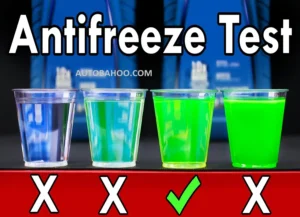Understanding What Your Car Registration Paperwork Looks Like:
Have you ever found yourself digging through your glove compartment trying to locate specific details about your vehicle. But unsure exactly where to find it on the paperwork you received from your DMV?
This in depth guide provides a comprehensive breakdown of all the key elements that make up a typical vehicle registration packet in the United States with the goal of helping you be able to quickly reference any necessary ownership or vehicle information should you ever need it.
Breaking Down the Main Registration Card Document:
Let’s start with the primary piece of registration paperwork. Your vehicle registration card. This legal file serves as evidence your vehicle is well registered along with your kingdom’s branch of Motor cars (DMV). The card will contain several crucial data points clearly printed:
Registered Owner Information:
The cardboard lists your complete call and current residential cope with and may include your driving force’s license or country identity quantity.
This establishes you because the registered owner of the automobile is on record with the DMV.
be sure to continually preserve your address up to date with them in case you flow to make certain any renewal notices are obtained on time.
Vehicle Description Details:
The make model, body model year of your vehicle will be indicated. For example: “2020 Toyota Corolla”.
Additionally the 17 character vehicle identification number (VIN) is included. This unique identifier is like a serial number for your specific vehicle that differentiates it from any other.
Registration Expiration Date:
Clearly stated on the card will be the month and year that your current registration is set to expire. This date triggers when you need to renew the registration to maintain it as valid and up to date with the DMV.
Periods between renewals vary by state but are most commonly annually or every other year.
Windshield Sticker (Optional):
As a supplement to carrying the registration card
Some states provide a small adhesive sticker to affix to the lower front passenger side of your windshield. This sticker displays the same registration details and serves as a visual verification of validity if requested by law enforcement.
Summary of Key Card Information:
To summarize some of the core elements on the front side of a typical registration card, reference Table 1 below:
| Data Point | Description |
| Registered Owner | Full name, address, DL/State ID |
| Vehicle Details | Make, model, year, VIN |
| Registration Expiration | Month/year registration expires |
The back side may include additional state specific legal notices or special program participation indicators like for emissions testing exemption.
Keeping your information stored together in one place makes referencing the card easy when needed.

Reviewing Supplemental Documents:
In addition to the main card your registration renewal paperwork may include several supporting documents depending on your state and specific vehicle ownership details:
Title Application : If newly purchasing a used vehicle, a title transfer application is included to change ownership records with the DMV.
Temporary Permit : Until your permanent registration arrives, a paper permit maintains legal driving privileges for a set period, such as 30 days. Design and issue process varies by state.
Emissions Test Form : For states with emissions inspection mandates, this paper schedules your vehicle’s test and serves as proof of passing once complete.
Special Registration Forms : Unique forms are supplied for special use vehicles like motorcycles, off-road only, multi-purpose, commercial, etc. accommodating special licensing needs.
Registration Renewal Reminder : As a courtesy, many DMV’s automatically mail a postcard 60-90 days prior to expiration serving as a reminder to renew on time to avoid penalties.
Taking a minute to familiarize yourself with any enclosed supplemental paperwork ensures you know what’s what should any questions arise related to these supporting documents. Properly filing it all together keeps your vehicle records organized.
Registration Differences Across States:
While the core fundamentals remain consistent nationwide, each state’s DMV implements vehicle registration requirements with some regional variation.
Understanding these differences is important whether registering a vehicle for the first time in a new state or if considering relocating at some point:
Registration Periods : Can range from just one year (needing annual renewal) to multi year options of 2, 3 or more years depending on location.
Renewal Costs : Registration fees change between states and may factor in elements like a vehicle’s age, fuel efficiency, engine size or other criteria.
Temporary Permits : How temporary operating permission is issued prior to full registration can differ in terms of appearance and valid timeframe.
Emissions Requirements : States with emissions testing programs structure inspection scheduling and compliance tracking individually.
Online Services : All DMV’s offer online account access now, but navigating renewal processes and available services varies site to site.
Being mindful of each state’s implemented policies ensures proper registration is maintained regardless of your residency changes over time. Always reference your local motor vehicle agency for the latest scoop.
The Details That Matter:
With an in-depth understanding of what to expect within your vehicle registration packet, you now have a valuable reference at your fingertips. Keeping your paperwork organized helps eliminate confusion down the line:
- Registration Card : Store in your glove box for quick ID expiration retrieval.
- Title/Supplements : Maintain together securely at home.
- Reminders : Mark renewal dates ahead on your calendar.
- Online Account : Sign up for e-notifications and self service renewals.
- Contact Info : Jot the DMV customer service number inside for easy access.
Proper familiarization sets the stage to stay fully in compliance and navigate any DMV interactions with confidence. Knowledge is power when it comes to maintaining complete and valid car up date registration.

The Importance of Keeping Registration Documents Accessible
Owning a vehicle comes with a variety of responsibilities, chief among them is properly registering and maintaining the legal status of that car or truck.
While the specifics may vary across state lines, the fundamental elements of a vehicle registration packet remain consistent nationwide.
Mastering the Renewal Process
Understanding when your current registration is set to expire is crucial. Many DMVs provide courtesy reminders, but it’s wise to mark those renewal dates on your personal calendar as well.
Being proactive about timely re-registration avoids late fees or other penalties.
Storing Registration Materials Securely
The registration card itself should be kept in your vehicle, readily available if needed. However, the supplementary documents like the title and any special forms should be stored safely at home, either in a file folder or fireproof safe. This ensures you can always access the full set of records pertaining to your vehicle’s ownership.
Taking Advantage of Digital Services
In today’s technology-driven world, many motor vehicle agencies offer online account portals where customers can manage their registrations.
From renewing registrations to updating contact information, these digital tools streamline the process. Signing up and linking your vehicle records provides unparalleled convenience.
By understanding the comprehensive nature of vehicle registration paperwork and developing smart organizational habits, drivers can stay ahead of this important administrative task.
With the details of your car’s ownership details readily available, you’ll be prepared to handle any situation that may arise, from routine traffic stops to moving out of state.
FAQ:
Q:What is car registration in the USA?
A:an official process that provides you with a legal document proving your ownership of the vehicle and that it’s road legal.
Q:How does a car registration look like in Texas?
A:Your vehicle registration sticker displays your license plate number, county of registration and partial vehicle identification number.
Q:How are car number plates in USA?
A:Plate designs often contain symbols, colors, or slogans associated with the issuing jurisdiction.
Q:Is car registration mandatory in USA?
A:Drivers in the United States are required to register their car with the Department of Motor Vehicles (DMV).
Q:Do American cars have registration plates?
A: Every state requires at least one license plate on motor vehicles.
Conclusion:
In closing, while deciphering DMV paperwork can initially seem complex, breaking down registration documents line by line equips you with strong baseline understanding.
Knowing where key details reside enables expedient referencing as needs arise. With this comprehensive guidance, understanding exactly what does a car registration look like is no longer a mystery.
Staying proactive managing your vehicle records ensures legal and hassle free motoring a goal achieved through knowing the ins and outs of your registration paperwork inside and out.

With over 5 years of dedicated experience in the automotive industry, I am passionate about all things automotive. My journey began with a deep curiosity for automobiles, which led me to delve deeper into their mechanics, technology and trends. My expertise spans various aspects of the automotive world, from the latest electric vehicles to classic car restoration techniques. Through my articles, I aim to share my knowledge and insights, helping readers stay informed and inspired in the fast-paced world of the automobile.











